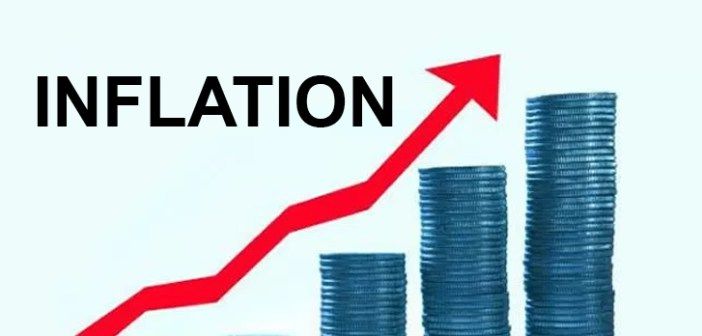
Audio By Carbonatix
Ghana’s inflation of 40.1% is the 4th highest in Sub-Saharan Africa in 2023, the World Bank October 2023 Africa Pulse Report has revealed.
Zimbabwe is 1st with more than 80% inflation and is followed by Sudan (60%) and Sierra Leone (42%).
According to the report, food and energy prices are still contributing to driving headline inflation in most countries in the region.
By July 2023, it said, nearly half of the countries in the region with monthly available information on food prices (20 of 41 countries) had double-digit year-on-year rates of food inflation, with the fastest increases experienced in Burundi, Ghana, Malawi, Sierra Leone, Sudan, and Zimbabwe.

The report furthered that there has been progress in the fight against inflation in several countries in the region with some of them having already reduced inflation to near or within the central bank target band for example, Kenya, South Africa, and Uganda.
“In other countries, inflation still remains above target and has been for a prolonged period of time and/or shows no sign of having peaked Ghana, Nigeria, and Sierra Leone”, it added.
Despite the disinflation trend exhibited by some countries in the region, the report stressed that the rates of consumer price growth are still high, above target, and above pre-pandemic levels for others.
In contrast, the rate of inflation in four countries in the region is expected to accelerate by more than 10 percentage points in 2023 from last year, namely, the Democratic Republic of Congo, Ghana, Sudan, and Zimbabwe.
Inflation for August 2023 falls to 40.1%
The year-on-year inflation for the month of August 2023 fell to 40.1% from the 43.1% recorded in July 2023, the lowest in 12 months.
According to data from the Ghana Statistical Service, Food inflation witnessed a decrease to 51.9% in August 2023, from 55.0% the previous month.
Non-food inflation also dropped by 2.9% to 30.9% in August 2023.
For the first time in the year, inflation for imported products recorded a rate lower than locally produced items. Whilst inflation for locally produced items was 42.4%, inflation for imported items was 36.2%.
Latest Stories
-
Vice President honours Nkrumah’s photographer, Chris Hesse, for safeguarding national memory
3 minutes -
3 arrested for impersonating Speaker, IGP on social media
3 minutes -
BoG to tighten monetary policy in half-year 2026
11 minutes -
Parliament approves GH₵357 billion budget for 2026
17 minutes -
MAX and Bolt announce strategic partnership to power electric mobility and vehicle ownership in Ghana
34 minutes -
Greater Accra poultry farmers association says it was excluded from gov’t ‘Nkoko nkiti nkiti’ initiative
47 minutes -
Michael Adangba survives dawn road crash en route to Bolgatanga
51 minutes -
Court remands 40-year-old man for alleged murder
52 minutes -
AngloGold Ashanti Obuasi mine donates fire tender to boost emergency response in municipality
53 minutes -
Gov’t introduces sliding-scale mining royalties to capture price gains
1 hour -
Global Africa Summit Accra 2025 rallies investors, diaspora and policymakers to boost trade and growth
1 hour -
New research suggests a better way to fight littering in Ghana
1 hour -
We must protect our own – Adutwum spokesperson calls for Ashanti solidarity
1 hour -
FDA shuts down 7 Foreign shops in Kumasi over unapproved, foreign-labelled products
2 hours -
13 arrested as Central East Police crack down on crime in Senya Beraku enclave
2 hours

